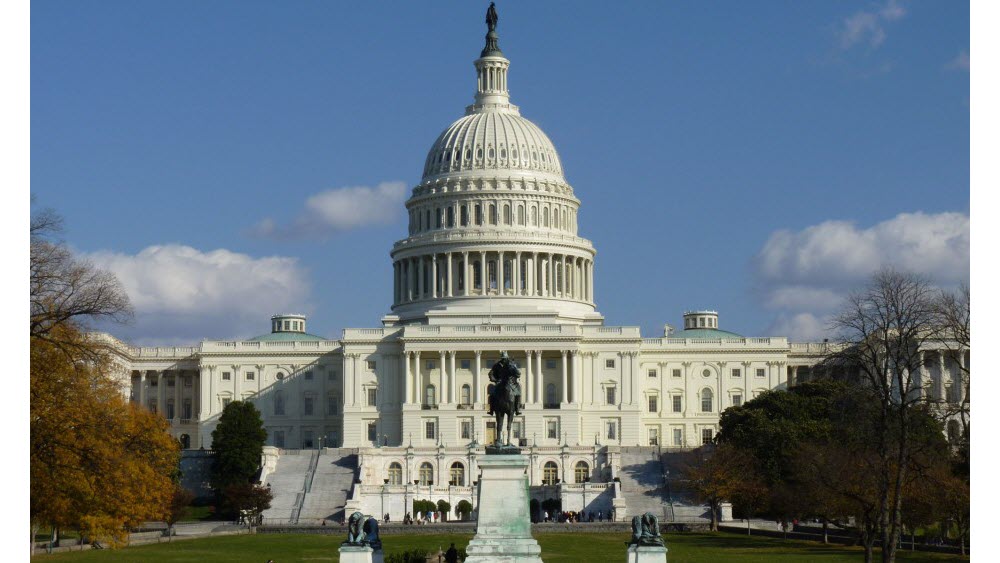House E&C Approves Bipartisan Broadband Bills

The smarter way to stay on top of broadcasting and cable industry. Sign up below
You are now subscribed
Your newsletter sign-up was successful
The House Energy & Commerce Committee has favorably, and unanimously, reported a trio of broadband-related bills to the full House for a vote, as well as a pirate radio bill that attempts to keep ad dollars out of pockets of those broadcast brigands.
That came in an executive mark-up session Thursday (July 12), where a raft of bills were amended--or not--and vote on.
H.R. 3994, the Advancing Critical Connectivity Expands Service, Small Businesses Resources, Opportunities, Access, and Data Based on Assessed Need and Demand (ACCESS BROADBAND) Act, would create an Office of Internet Connectivity and Growth within the National Telecommunications & Information Administration, which is the White House's chief telecom policy advisor. According to author Rep. Paul Tonko (D-N.Y.), the goal was basic broadband access for all. He said it would also use existing broadband assets among multiple agencies and simplify the ability of small businesses and others to leverage them.
He said broadband access can be the difference between success or failure for students, doctors and entrepreneurs, but said the government has done a poor job of tracking broadband deployment or federal dollars. he said the bill would track broadband dollars and begin to address the issue of enhancing oversight of where and how that money is being spent.
The bill was amended to more clearly define broadband support, he said, and better identify which programs offer broadband support, which were described as technical corrections.
Tech for Precision Agriculture
Also getting the committee nod was the Precision Agriculture Connectivity Act of 2018 (H.R. 4881), which would direct the FCC to create a task force to "meet the connectivity and technology needs of precision agriculture in the United States." Those are broadband-enabled technologies that allow farmers to collect data in real time on cropland and ranchland.
The smarter way to stay on top of broadcasting and cable industry. Sign up below
Rep. Bob Latta (R-Ohio) added a bipartisan amendment that includes the definition of broadband access currently in the federal code but also allows it to "evolve" based on FCC findings. It also ads members of to the task force with expertise in broadband data collection, geospacial analysis and coverage mapping. He agreed that broadband mapping is lacking, so that it was important to add those experts.Also getting bipartisan approval was H.R. 6032, the State of Modern Application, Research, and Trends of IoT (or SMART IoT) Act, which was reported out of Digital Subcommittee last month.
The bill stems from a bipartisan IoT working group helmed by Latta and Rep. Peter Welch (D-Vt.). It directs Commerce to survey public sector IoT efforts for the benefit of private industry and regulators and provide better info on who government IoT contacts are.
Finally, the committee also approved H.R. 5709, the Preventing Illegal Radio Abuse Through Enforcement (PIRATE) Act. That bill boost fines and enforcement against pirate radio broadcasters, who can represent a threat to licensed broadcasters and the life-saving information they provide, bill sponsor Rep. Leonard Lance (R-N.J.), vice chairman of the subcommittee, has said.
Reporting and Monitoring
The bill was amended to add annual reporting and monitoring "sweeps" and require the FCC to maintain a data base of both legally licensed stations and known pirates. The database is to allow local radio ad purchasers to determine if they are buying time on legitimately licensed stations, so ad dollars won't be used to prop up bad actors.
Rep. Greg Walden (R-Ore.), chair of the committee and a former radio station owner/operator, pointed out that pirates can be pretty "vile and vulgar."
Rep. Tonko said that pirates are harming consumers and the public, and the FCC needs to do more to stop them. "Our communities are better served when broadcasters observe the rule of law," he said.
Markups are usually relatively short and uneventful, but the markup became a forum for the immigration debate as the committee debated a resolution to direct Health & Human Services to supplying information on the separation and reunification of children and their parents at the border per the President's "zero tolerance" policy.
Despite the debate, and Republicans' argument that the resolution is usually reserved as a last resort when the Administration has refused requests for info, which was not the case, and that committee Republicans had already written to HHS for info on the zero tolerance policy, the resolution passed 52 to 0.
Contributing editor John Eggerton has been an editor and/or writer on media regulation, legislation and policy for over four decades, including covering the FCC, FTC, Congress, the major media trade associations, and the federal courts. In addition to Multichannel News and Broadcasting + Cable, his work has appeared in Radio World, TV Technology, TV Fax, This Week in Consumer Electronics, Variety and the Encyclopedia Britannica.

